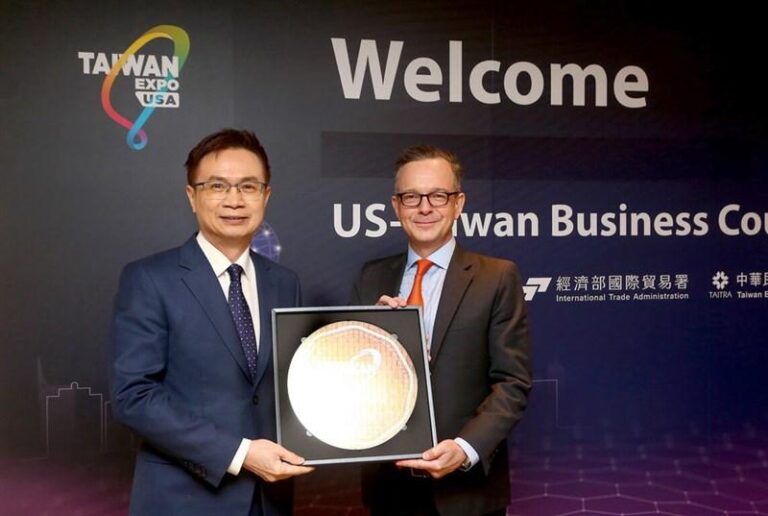Redefining US-Taiwan Relations: A Call for Strategic Partnership
Leading voices from the American business community are urging a fundamental shift in Washington’s policy toward Taiwan, advocating for the island to be recognized as a vital strategic ally rather than a rival. This perspective underscores the importance of deepening economic and technological cooperation to bolster supply chain integrity and uphold democratic principles throughout the Indo-Pacific. Taiwan’s pivotal position in the semiconductor sector—crucial for industries ranging from consumer gadgets to defense systems—makes it an indispensable partner in global technology ecosystems.
The coalition has identified several priority areas for enhanced collaboration:
- Trade Optimization: Revising export regulations to facilitate smoother exchange of goods and innovation.
- Investment Growth: Promoting joint ventures and infrastructure projects through targeted incentives.
- Technological Synergy: Expanding joint research and development, particularly in semiconductor fabrication and next-generation 5G networks.
- Supply Chain Diversification: Reducing overdependence on single-source regions by broadening supplier bases.
| Focus Area | Current Situation | Recommended Change |
|---|---|---|
| Trade Policies | Highly restrictive | Adopt more adaptive frameworks |
| Investment Climate | Limited incentives | Introduce tax benefits and grants |
| Tech Collaboration | Fragmented efforts | Establish unified R&D initiatives |
| Supply Chain | Concentrated geographically | Encourage regional diversification |
Economic and Geopolitical Advantages of a US-Taiwan Alliance
Viewing Taiwan as a strategic economic partner opens the door to substantial benefits for the United States. Taiwan’s leadership in semiconductor production is a cornerstone for global supply chains, impacting sectors such as automotive manufacturing, consumer electronics, and national security technologies. Strengthening trade relations would not only enhance supply chain robustness but also stimulate innovation through collaborative R&D efforts.
- Access to state-of-the-art semiconductor technologies
- Mitigation of supply chain vulnerabilities
- Expansion of high-tech trade opportunities
- Increased private sector capital flows
From a strategic standpoint, a closer US-Taiwan partnership provides significant leverage in East Asia. It serves as a stabilizing force in a region marked by complex maritime security challenges, enabling enhanced intelligence cooperation and joint defense initiatives that uphold democratic governance amid rising geopolitical pressures.
| Benefit | Effect |
|---|---|
| Supply Chain Security | Ensures steady availability of critical technologies worldwide |
| Geopolitical Influence | Promotes regional peace and security |
| Innovation Acceleration | Boosts joint research and development |
| Defense Collaboration | Strengthens deterrence and response capabilities |
Strengthening Trade Frameworks and Safeguarding Investments
The US business sector advocates for moving beyond a security-centric approach to embrace comprehensive trade agreements that solidify economic ties with Taiwan. Such agreements would facilitate mutual market access, reduce bureaucratic hurdles, and enhance economic stability in the Asia-Pacific.
Additionally, there is a strong push for robust bilateral investment protections to shield American enterprises operating in Taiwan. These protections would cover dispute resolution mechanisms, intellectual property rights enforcement, and investment security, fostering a transparent and reliable business environment. Key recommendations include:
- Accelerated regulatory approvals for cross-border investments
- Stronger safeguards against unfair asset seizures
- Independent arbitration channels for commercial disputes
| Proposal | Anticipated Benefit |
|---|---|
| Comprehensive Free Trade Agreement | Expanded market access and tariff elimination |
| Investment Protection Treaty | Enhanced legal certainty for investors |
| Dispute Resolution Framework | Faster and fairer conflict resolution |
Prioritizing Collaborative Security Over Confrontation
Experts within the US business community emphasize the importance of shifting from confrontational tactics to cooperative security strategies. They advocate for frameworks centered on joint defense efforts, intelligence sharing, and coordinated crisis management as more effective means to maintain peace in the Taiwan Strait. This approach aims to reduce the risk of escalation that could disrupt economic and diplomatic relations.
Proposed collaborative security initiatives include:
- Strengthened cybersecurity partnerships to combat shared threats
- Joint military exercises focused on defensive readiness
- Multilateral diplomatic engagements to ease tensions
- Building resilient supply chains through shared technological resources
| Initiative | Objective | Expected Result |
|---|---|---|
| Cybersecurity Coalitions | Prevent and respond to cyber threats | Enhanced threat intelligence and defense |
| Coordinated Defense Drills | Improve joint operational readiness | Stronger deterrence posture |
| Diplomatic Dialogue Platforms | Promote communication and conflict resolution | Reduced regional tensions |
Conclusion: Charting a Collaborative Path Forward for US-Taiwan Relations
As geopolitical dynamics intensify in the Indo-Pacific, influential American business leaders are advocating for a recalibrated US approach toward Taiwan—one that prioritizes partnership over rivalry. Embracing Taiwan as a strategic ally promises to enhance economic resilience, foster innovation, and contribute to regional stability. The forthcoming policy decisions by Washington will be pivotal, with global stakeholders closely monitoring efforts to balance strategic imperatives with diplomatic engagement.







